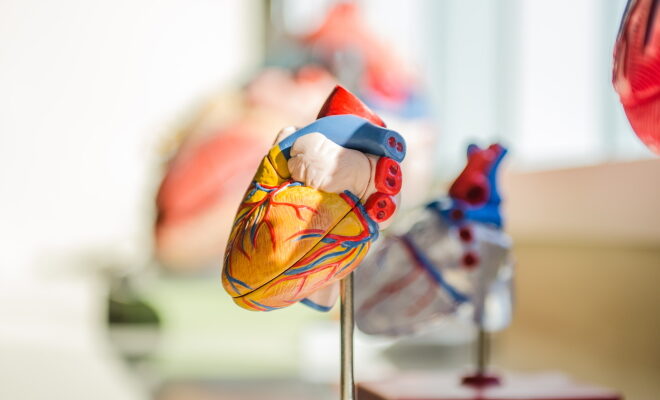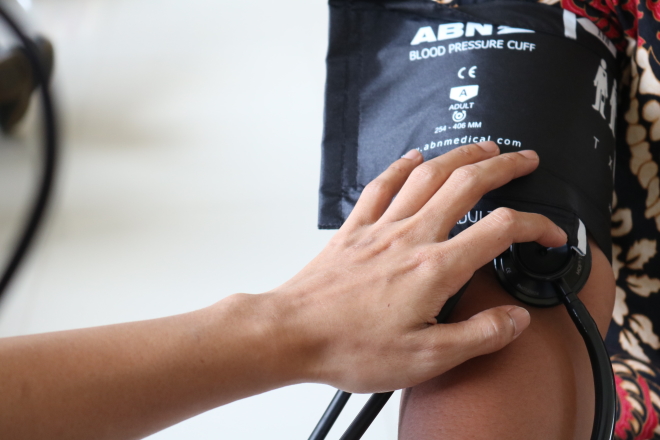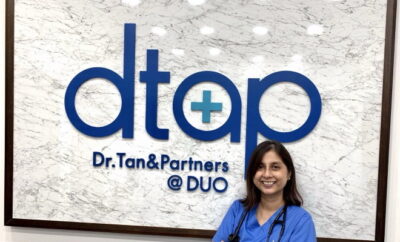
Health x Wellness
Early detection of killer diseases through regular medical screenings
The public has to know killer diseases disproportionately affect more men than women. These killer diseases include Ischaemic heart disease and cancer. Early detection can provide a fighting chance.
In Singapore, among the principal causes of death in Singapore for men, Cancer is the top killer, followed by, Pneumonia, Ischaemic heart disease and Liver Cancer.
Ischaemic heart disease killed 62 percent more men than women in 2019. This disease accounts for the largest difference in death between genders, compared to other cardiovascular diseases.
Early diagnosis of Ischaemic heart diseases can be life-saving. This can be done by screening for risk factors of ischaemic heart disease such has hypertension, diabetes and hyperlipidaemia.
Unfortunately, SATA CommHealth reports that medical screenings have dropped by 40 percent since the COVID-19 Pandemic began.
We discuss this trend with Dr Cheryl Glenn, Medical Director, SATA CommHealth, and what are some of the critical screenings men should take.
the Active Age (AA): Can you share the top causes of death in Singapore for men?
Dr. Cheryl Glenn (CG): According to MOH, cancer and Ischaemic heart diseases are among the top 3 principal causes of death in Singapore. Ischaemic heart disease in particular, has killed 62 percent more men than women in 2019, which is the most significant difference when looking at cardiovascular diseases that cause more death in men than women.
When we look at cancer, men are particularly more vulnerable to liver, kidney, pancreatic cancer. These three diseases are ranked among the top ten most common cancers affecting men. (However), they are not among the top ten for women.
AA: Which causes – in your opinion – are preventable or treatable with early detection?
CG: Ischaemic heart disease, if diagnosed early, can be life-saving. It is very important to be screened for risk factors of ischaemic heart disease such as hypertension, diabetes and hyperlipidaemia. Those with increased risk are sometimes advised to do a stress treadmill test and may even be recommended for a CT angiogram.
Current guidelines advise routine screening for those at higher risk of liver cancer (cirrhosis, chronic hepatitis B infection). These patients need to annually do a liver ultrasound and 6 monthly blood tests for liver function tests including alpha fetoprotein, a tumour marker for liver cancer.
Colorectal cancer is the top cancer affecting men. If diagnosed early, it can also be treatable. This can be screened via a simple stool test and in some cases, may need a colonoscopy.
AA: SATA CommHealth shared that medical screenings have dropped by 40 percent since the pandemic started. What are some of the possible reasons for this?
CG: As the overall guidelines are to stay at home, most have cancelled or postponed their health screenings. There is also probably a higher precaution to enter a healthcare institution for fear of being in close proximity to sick patients and being able to contract COVID-19.
AA: Anecdotally, some individuals are hesitant to go for medical screening because they are afraid of finding out a negative result or impact their personal or employer insurance. What would you share with these individuals?
CG: Medical screenings are often found to be highly beneficial in preventing the onset of chronic diseases, many of which do not produce early warning signs.
Men in their 20s and 30s should focus on getting basic health screenings minimally every 3 years, so that they can use the results to review their lifestyle, and make early changes that can significantly protect their health in the long-term. Those with risk factors such as obesity, should do their screening even more frequently.
AA: What are some of the important/critical medical screenings for men?
CG: For men below 40, they should identify key risk factors that might indicate necessity to screen early for certain diseases. For example, while screening for diabetes should start at 40 years, if the individual has risk factors like obesity and family history of diabetes, he should start screening at 30 years.
Men in their 40s should screen for chronic illness such as diabetes, hypertension, hyperlipidaemia because early management of these diseases is important. This can allow for some lifestyle changes to keep the diseases under control without requiring medications in some cases.
Men in their 50s should screen for colorectal cancer, prostate cancer, diabetes, hypertension, hyperlipidaemia and ischaemic heart disease. When diagnosed early, it allows for better management and better outcomes.
AA: What happens during a typical medical screening?
CG: The individual is usually asked to fast after 10pm the day before. On the day of the health screening, the Doctor does a full medical history taking, looking at the individual’s current, past medical history, assessment of family history as well as social history including smoking, alcohol intake and physical exercise.
The doctor does a full physical examination and will advise the individual if any particular tests are required. The nurse takes the vital parameters including blood pressure, height, weight, visual tests as well as the blood tests.

If imaging tests are required, these will also be done (for example, x-rays, ultrasounds, etc). The individual is given an appointment to return for a review of the results.
AA: What can an individual do with the medical screening report?
CG: If risk factors for ischaemic heart disease are identified, SATA CommHealth can help to keep some of these conditions under control.
For example, the individual will be advised to take medication for hypertension, hyperlipidaemia and diabetes, and make some changes to their lifestyle in terms of diet and exercise.
We can also advise further tests if required, such as treadmill stress tests or in some cases, a referral to a cardiologist.
For dietary changes, the individual can be referred to a dietician or physiotherapist or embark on a weight loss programme. Such programmes can include certain lifestyle modifying technologies and apps such as Curamaker, which enables the individual to gain knowledge about what foods may be good or bad for them.
AA: Can you share some tips on how to reduce the chances of contracting liver cancer and ischaemic heart disease?
CG: Limiting the chances of contracting liver cancer can begin with limiting your alcohol intake, ensuring you are vaccinated against hepatitis B, and maintaining a healthy lifestyle which may prevent an individual from having a fatty liver.
For ischaemic heart disease, we need to ensure risk factors are taken care of. If the individual has hypertension, hyperlipidaemia or diabetes, these need to be well-controlled. It is important to maintain a healthy lifestyle in terms of diets low in saturated fat and sugar and (getting) regular exercise. It is also important to stop smoking if the individual is currently doing so.
For more information on health screenings, visit www.sata.com.sg/hsp/
Photo by Mufid Majnun on Unsplash and by jesse orrico on Unsplash








